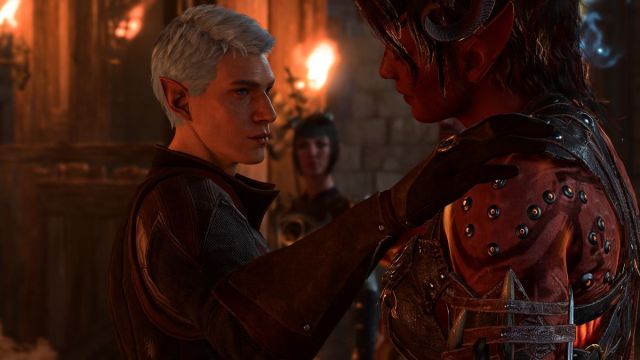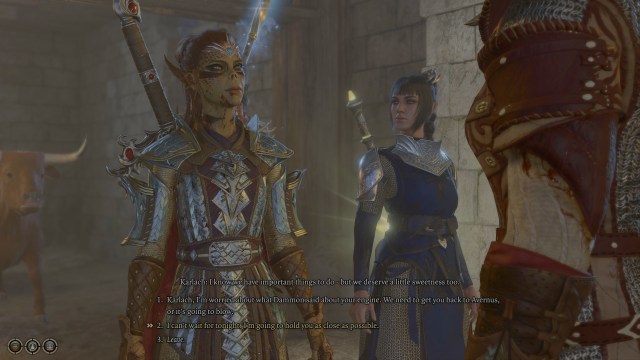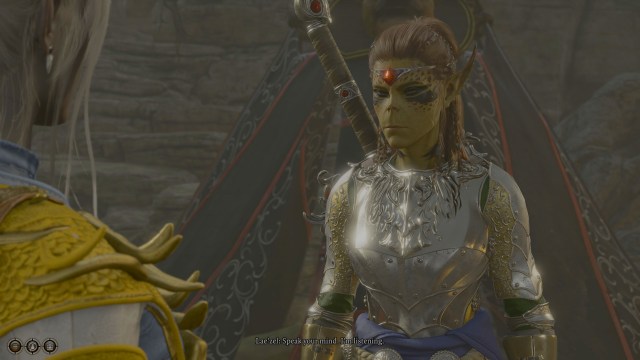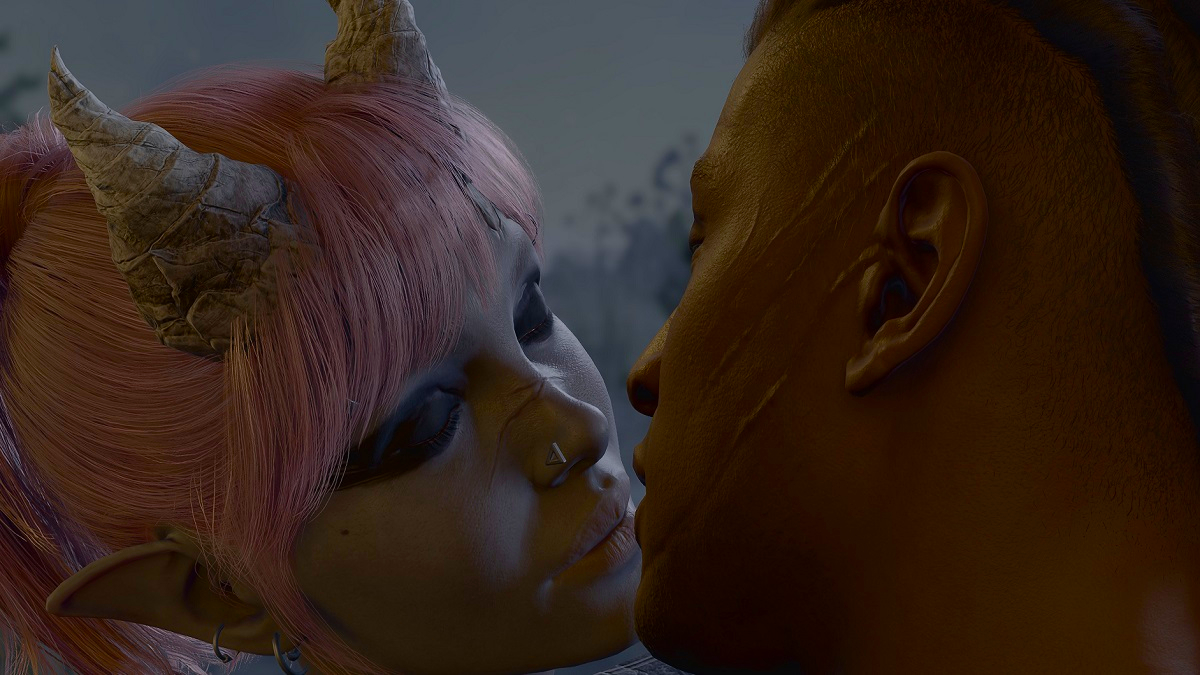Larian Studios’ seminal Baldur’s Gate 3 launched over a month ago, and despite other solid releases being sprinkled after, I keep returning to Faerun. It captured my imagination in a way I haven’t felt in games since I was a kid.
I wondered why this was until I thought about how it handles romance. When I shipped Karlach and Lae’zel together, I compared Baldur’s Gate 3 to dating sims rather than other RPGs and everything clicked. This is a fantastic RPG, but more importantly, it’s an awesome dating sim.

Treating Baldur’s Gate 3 like an epic otome
There was a time in my life when I loved playing visual novels. I still play them to an extent, but not nearly to the degree I played them as a kid. This was when I was most into anime and collecting weird games, with various otome being the most prominent.
For anyone unfamiliar, otome is just the name for dating sims that cater to a predominantly female audience. Above any action game or RPG I played, otome felt like a power fantasy, since several attractive and successful guys wanted my character’s attention. The stories also interested a teenage me, so explaining why I enjoyed these games was convenient.
More than anything, I found them comfortable to play, like a warm blanket with cocoa. The individual stories had plenty of twists and turns, but the structure was predictable. Myself and the guy whose route I’m choosing will probably go through hell, but unless I messed up badly, things would turn out fine.
This mentality returned in Baldur’s Gate 3 because, while the game’s story was fantastic, everyone was also really hot. Just as I fell hard for Hakuoki‘s depiction of Souji Okita and Hajime Saito, the likes of Shadowheart and Lae’zel stole my heart. My tastes may have changed over time, but coming to this realization brought me back to those days.
Now, a valid question is how dating sims actually compare to Baldur’s Gate 3. Many BioWare RPGs have affection gauges, and recent Fire Emblem titles have many romance options. However, there are key differences; the main one being how a romantic arc is structured.

How many ways can this end?!
Romance in many games gets introduced fairly late into a playthrough. The Dragon Age games do a great job of letting players flirt with others in a non-commital way while the Persona titles feel abrupt by introducing romance at the end of certain social links. Regardless, romantic connections will likely not form before the game’s latter half.
Baldur’s Gate 3 operates differently, as most romantic arcs start as soon as the first act, with speedrunning categories forming to see how fast someone can smash with their newfound companions. The relationship starts in various ways depending on the individual and what they are looking for. Astarion and Lae’zel start as hookups before forming something deeper, while Shadowheart and Wyll have a more emotional base before becoming physical.
How romantic moments are peppered throughout the game can be compared to many dating sims. I’ll use Piofiore: Fated Memories as an example because I recently played it. Assuming I want to get with mafia boss Dante Falzone, my choices need to cater toward spending time with him and having good chemistry. Since dating sims are about dictating the story’s direction, the best give each character multiple endings. Piofiore has six potential love interests, but a staggering 38 endings in total.
This means many scenes can play out incredibly different, depending on how protagonist Lili acts and responds. Not every ending is happy either, so it helps to think about each decision before things go horribly wrong. Still, the biggest parallels between it and Baldur’s Gate 3 happened when exclusive scenes with a chosen love interest happen a couple of hours into the game.

Baldur’s Gate 3 sometimes won’t let you have a happily ever after
Baldur’s Gate 3 works similarly to Piofiore, giving many characters multiple endings within their romance. I’ll use Lae’zel as an example, since I’m most aware of the numerous directions her romance goes. Her route has numerous conclusions, testing her loyalty towards the player, the githyanki, and the truths she’s learned over the course of Baldur’s Gate 3.
From what I gathered, each character’s arc has at least one point where there’s a deviation, and that would influence the romance. Returning to Lae’zel, not all of her outcomes see her stay with the player. Looking at her from a dating sim perspective doesn’t make her unique, since most routes only have one good ending. They are all bittersweet, since Lae’zel’s entire arc revolves around her devotions and loyalties, and one may eventually have to bend or break for another.
Something funny is that I haven’t reached a definitively happy ending in Baldur’s Gate 3. Both playthroughs ended with tragic breakups due to my choices.
Baldur’s Gate 3 can be seen as a dating sim if you want to look at it that way. It places more attention on romance than most RPGs, but that’s only one of its draws. There’s an incredible world and a fantastic combat system alongside the amazing cast of mostly romanceable companions. Recommending another RPG after finishing Baldur’s Gate 3 is probably ideal, but there are plenty of great dating sims if you want that romantic focus.
Love stories are hard to pull off, and Baldur’s Gate 3 executes them brilliantly. Some of its most heart-wrenching moments come from how a romance plays out, elevating the story to be more personal. It’s an approach that won’t work for many games, but how Baldur’s Gate 3 handles romance helps make it special.








